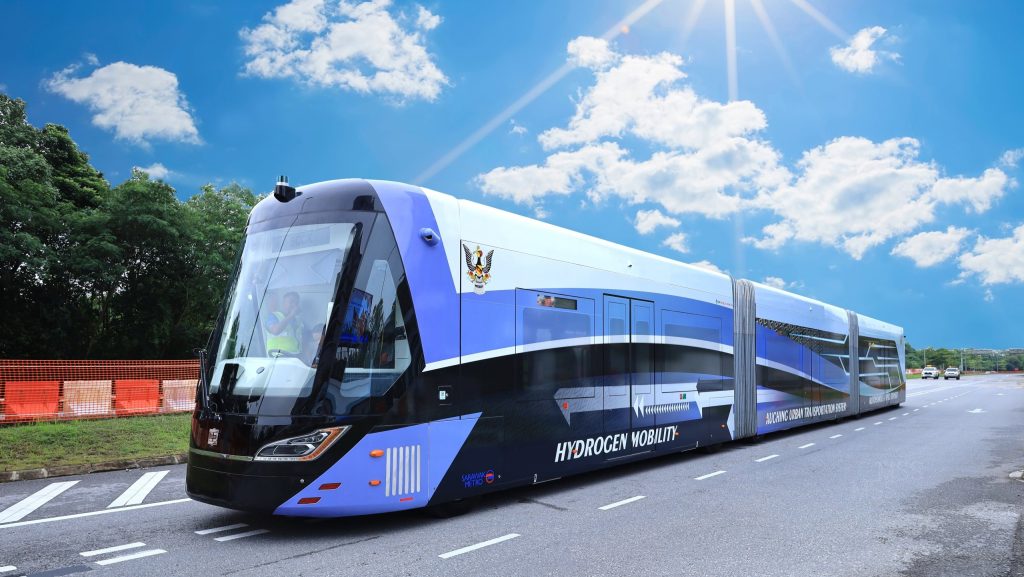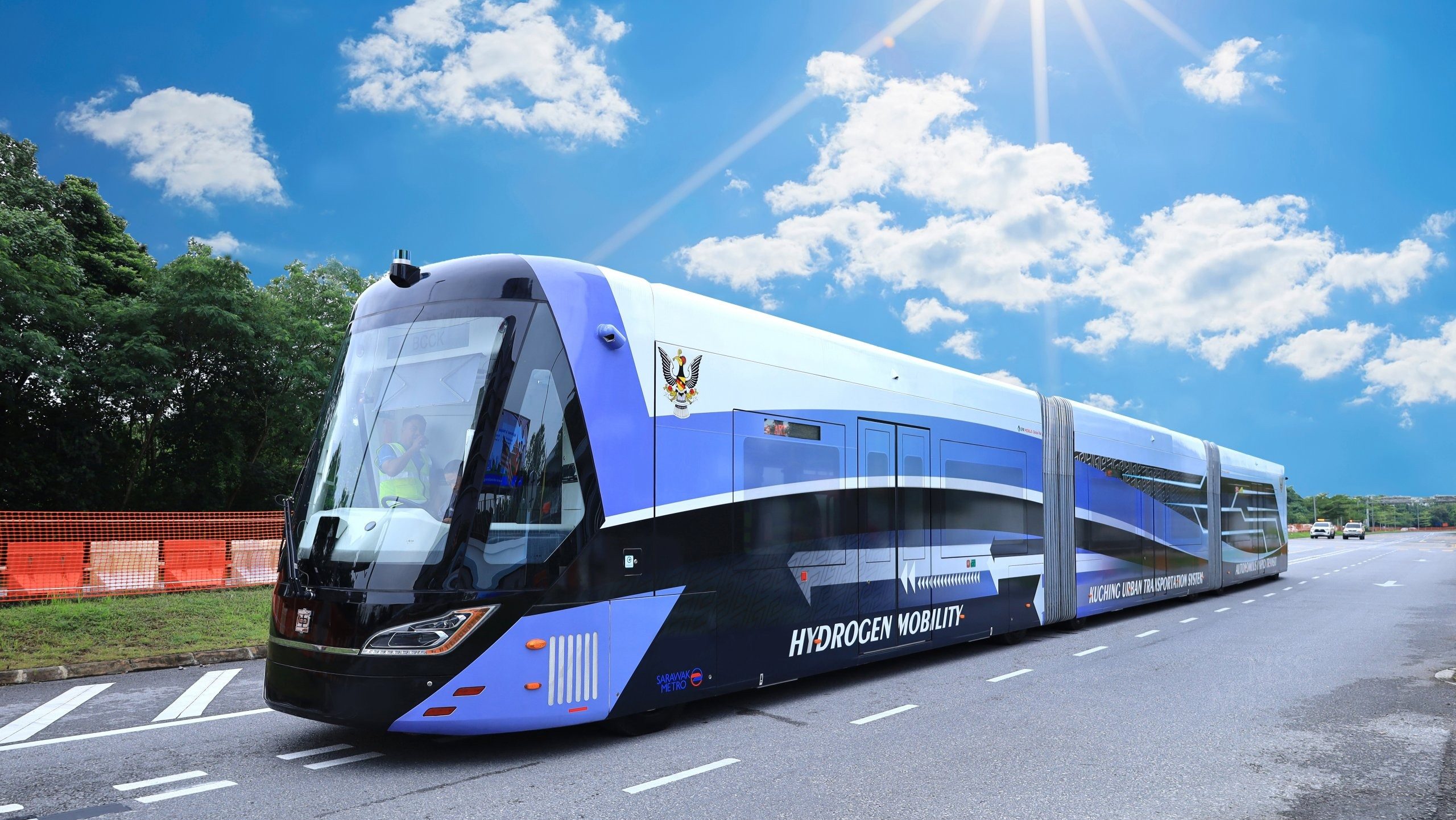Advertisements
Hydrogen to Drive Kuching’s Public Transport System into the Future

Introduction to Kuching’s Green Journey
KUCHING (May 31) – When Sarawak embarked on its green journey, the project that generated the most chatter – and continues to do so – is the hydrogen-powered Autonomous Rapid Transit (ART) tram.
The bold project had plenty of naysayers when it was first announced, but it did not take long before many began to believe that this is the way forward for a cleaner, more efficient public transportation system, not just in Sarawak but also in other parts of Malaysia.
Advertisements
Sarawak Metro’s Role in the Hydrogen-Powered ART
Sarawak Metro, a wholly-owned subsidiary of Sarawak Economic Development Corporation (SEDC), is tasked with implementing the Kuching Urban Transportation System (KUTS) project and ART, which are the backbone of the public transport system here.
Sarawak Metro chief executive officer (CEO) Mazli Mustaffa assured that the hydrogen-powered vehicles are perfectly safe for use with proper handling and safety measures, adhering to strict international safety standards.
“These vehicles are equipped with an advanced safety system, including sensors and shut-off valves, to detect and respond to potential issues. Leak detection systems minimise the risk of leaks, and emergency response protocols are in place to address any safety concerns,” he told The Borneo Post in conjunction with the upcoming Asia Pacific Green Hydrogen (APGH) 2024 Conference here.
Proof of Concept and Progress
A proof of concept (POC) exercise for ART was conducted from September to December last year to evaluate the hydrogen propulsion system’s capability and performance, hydrogen refuelling process, autonomous guidance system, technical data collection, and to identify any preliminary problems and challenges.
“As of April, construction is nearly completed on the three-kilometre stretch of dedicated ART lane in Kota Samarahan, which was used for the POC exercise last year,” Mazli said.
Other ongoing works include the finalisation of the ART system design, the commencement of construction on the Rembus ART depot in Kota Samarahan, and stations near the Sarawak Heart Centre and Simpang Tiga.
Zero-Emission Future
Mazli emphasized that both ART trams and their feeder buses are zero-emission vehicles. The bus service will operate within a three-kilometre radius from each ART station, offering first-and last-mile connectivity for commuters.
“The introduction of hydrogen-powered vehicles for the KUTS project is part of the Sarawak Government’s initiative to decarbonise public transportation, which aligns with environmental sustainability agendas,” said Mazli.
He pointed out the many benefits of incorporating hydrogen fuel cell technology in the public transport system: zero-emissions, energy efficiency, quieter operation, rapid refuelling, and longer range compared with electric vehicles.
Existing Hydrogen Bus Services
On the three hydrogen buses already operating in the city, Mazli said the buses currently run on two routes: the Downtown Heritage Loop and the Damai Loop.
“The Downtown Heritage Loop is well patronised by passengers commuting to various places in the city, including the Sarawak General Hospital, and it runs several trips daily from Monday to Friday. The Damai Loop, which operates on Saturday and Sunday, is popular with both locals and tourists traveling to Damai,” he noted.
Mazli added that the trial operation of the buses began in 2020 to gather information on vehicle maintenance and hydrogen consumption patterns, and the hydrogen bus service is free of charge to the public.
He also mentioned that Sarawak Metro has catered to requests by organisations from the public and private sectors as well as non-governmental organisations (NGOs) for passenger transfers during special occasions via the hydrogen buses.


